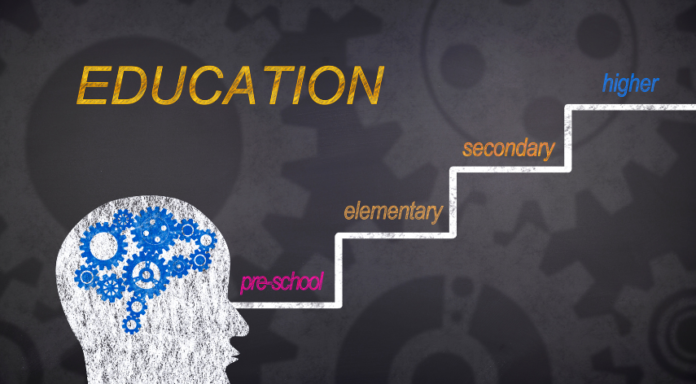In the realm of higher education, ensuring quality and continuous improvement is paramount. One of the mechanisms that facilitate this process is the Comissão Própria de Avaliação (CPA), which translates to the “Own Evaluation Commission” in English. This article delves into the significance, functions, challenges, and future trends surrounding CPA in the context of higher education institutions.
History of CPA
The concept of CPA emerged as a response to the growing need for systematic evaluation and assessment within higher education institutions. Originating from initiatives aimed at enhancing quality assurance, CPA has evolved over the years, adapting to changing educational landscapes and regulatory requirements.
Functions and Responsibilities of CPA
The primary role of CPA is to conduct comprehensive assessments of various aspects of institutional functioning, including academic programs, teaching methodologies, research activities, and support services. Additionally, CPA is entrusted with the responsibility of identifying areas for improvement and implementing strategies to enhance overall effectiveness.
Importance of CPA in Higher Education
CPA plays a pivotal role in upholding and enhancing the quality of higher education. By providing a framework for rigorous evaluation and self-assessment, CPA ensures that institutions remain accountable to stakeholders and committed to continuous improvement.
Structure of CPA
CPA typically comprises committees and working groups consisting of faculty members, administrators, students, and external stakeholders. This multi-stakeholder approach fosters collaboration and ensures that diverse perspectives are considered in the evaluation process.
CPA Process
The CPA process encompasses various stages, including data collection, analysis, stakeholder consultation, action planning, and implementation of improvement initiatives. This iterative process allows institutions to systematically address areas of concern and capitalize on strengths.
Challenges Faced by CPA
Despite its importance, CPA implementation is not without challenges. Common obstacles include resource constraints, resistance to change, lack of institutional commitment, and difficulty in measuring intangible outcomes. Overcoming these challenges requires innovative approaches and dedicated efforts from all stakeholders.
Best Practices for Effective CPA Implementation
To maximize the effectiveness of CPA, institutions can adopt several best practices. These include fostering a culture of assessment, providing adequate resources and support, integrating assessment into institutional processes, and promoting transparency and accountability.
CPA and Accreditation
CPA plays a significant role in the accreditation process, as it provides evidence of institutional effectiveness and compliance with accreditation standards. Institutions with well-established CPA systems are better positioned to demonstrate their commitment to quality assurance and continuous improvement.
Examples of Successful CPA Implementation
Several higher education institutions have successfully implemented CPA, yielding positive outcomes. Case studies highlighting effective practices can serve as valuable resources for institutions seeking to enhance their evaluation and assessment processes.
Future Trends in CPA
Looking ahead, advancements in technology, changes in educational paradigms, and evolving regulatory frameworks are expected to influence the trajectory of CPA. Future trends may include greater emphasis on outcomes assessment, increased use of data analytics, and enhanced stakeholder engagement.
Global Perspectives on Evaluation and Assessment
A comparative analysis of evaluation and assessment practices across different countries provides valuable insights into the strengths and weaknesses of various approaches. By examining global perspectives, institutions can identify innovative strategies and adapt best practices to their unique contexts.
CPA and Institutional Improvement
CPA is not merely a compliance exercise but a catalyst for institutional improvement. By fostering a culture of reflection, collaboration, and innovation, CPA enables institutions to identify areas for growth, implement evidence-based interventions, and ultimately enhance their capacity to fulfill their educational mission.
CPA’s Role in Student Engagement
Incorporating student perspectives into the evaluation process is essential for ensuring relevance and effectiveness. By actively involving students in assessment activities, institutions can empower them as partners in educational quality assurance and promote a student-centric approach to institutional improvement.
Conclusion
Comissão Própria de Avaliação (CPA) plays a vital role in enhancing the quality and effectiveness of higher education institutions. By facilitating systematic evaluation, fostering a culture of continuous improvement, and engaging stakeholders in the assessment process, CPA contributes to the advancement of academic excellence and institutional accountability.
FAQs
- What is the purpose of Comissão Própria de Avaliação (CPA)?
- CPA serves to conduct comprehensive evaluations of higher education institutions and promote continuous improvement.
- Who are the key stakeholders involved in CPA?
- Key stakeholders include faculty members, administrators, students, and external partners such as employers and regulatory agencies.
- How does CPA contribute to institutional accreditation?
- CPA provides evidence of institutional effectiveness and compliance with accreditation standards, thereby supporting the accreditation process.
- What are some common challenges faced by institutions in implementing CPA?
- Common challenges include resource constraints, resistance to change, and difficulty in measuring intangible outcomes.
- How can institutions maximize the effectiveness of CPA?
- Institutions can maximize the effectiveness of CPA by fostering a culture of assessment, providing adequate resources and support, and promoting transparency and accountability.


